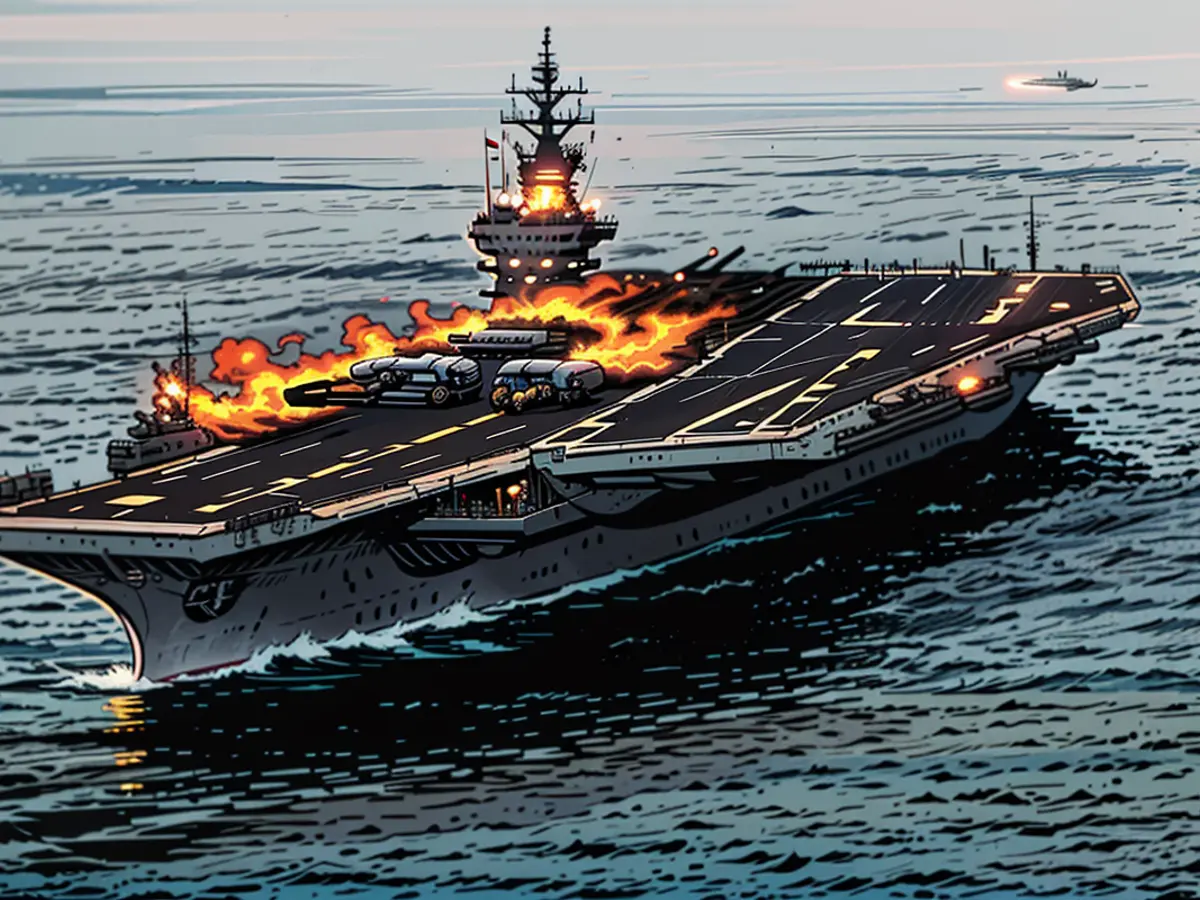US military presence in the Middle East increases
Pentagon spokesman Pat Ryder announced on Sunday that U.S. Secretary of Defense Lloyd Austin had ordered the USS Abraham Lincoln aircraft carrier, equipped with F-35 fighter jets, and its escort ships to expedite their deployment to the region. Austin also directed the USS Georgia guided-missile submarine to the region.
Tensions in the Middle East have escalated significantly following the killing of Hamas chief Ismail Haniyeh in Tehran at the end of July. Hamas and Iran blame Israel for the assassination, which Israel has not confirmed. Hours earlier, the Israeli military had killed the military chief of the pro-Iranian Hezbollah militia, Fuad Shukr, in Lebanon. Iran and Hezbollah have since threatened retaliation.
In response to the potential escalation, the U.S. had already deployed stealth bombers of the F-22 type to the Middle East. Last week, the U.S. announced the deployment of the aircraft carrier group, along with additional cruisers and destroyers.
Lufthansa will now avoid Iranian and Iraqi airspace in its entirety until August 21 due to the threat of escalation. Flights to Tel Aviv in Israel, Beirut in Lebanon, Tehran in Iran, Amman in Jordan, and Erbil in northern Iraq will also be suspended until August 21. French airline Air France and its subsidiary Transavia France have also extended the suspension of their flights to Beirut until next Wednesday.
To reduce tensions in the region, Germany, France, and the UK have called for an immediate ceasefire in the Gaza Strip and the release of Israeli hostages held for ten months. There must be "no further delay" in negotiating a ceasefire, German Chancellor Olaf Scholz, French President Emmanuel Macron, and British Prime Minister Keir Starmer said in a joint statement. They urged Iran and its allies not to further escalate tensions through attacks.
For the first time in months, a new round of negotiations on a ceasefire and the release of Israeli hostages is scheduled to take place on Thursday under U.S., Egyptian, and Qatari mediation. Israel has agreed to send a delegation, but Hamas now apparently rejects new negotiations.
Hamas announced on Sunday that it seeks the implementation of a ceasefire plan proposed by U.S. President Joe Biden in May. Hamas called on mediators to present a plan based on U.S. proposals and a UN Security Council resolution, and to "force" Israel to comply with the plan.
The war in the Gaza Strip began with the large-scale attack by Hamas on Israel on October 7. According to Israeli reports, 1,198 people were killed and 251 people were abducted in the Gaza Strip. Israel currently holds 111 hostages, 39 of whom are reportedly dead.
In response to the attack, Israel has been conducting large-scale military operations in the Gaza Strip. According to figures from the Hamas-controlled Ministry of Health, which cannot be independently verified, more than 39,890 people have been killed so far. Hundreds of people have also fled from the northern part of the city of Khan Yunis in the south of the Gaza Strip since Sunday, following a call by the Israeli military to evacuate ahead of a planned military operation.
Almost daily clashes have also been taking place at the border between Israel and Lebanon since the start of the war. In the early hours of Monday, Hezbollah fired dozens of rockets into northern Israel. According to Israeli reports, no one was injured.
The Iranian and Hezbollah threaten retaliation due to the assassination of their military leaders and the killing of their chief militia member. The international community urgently calls for no further escalation and an immediate ceasefire to reduce tensions in the region.







